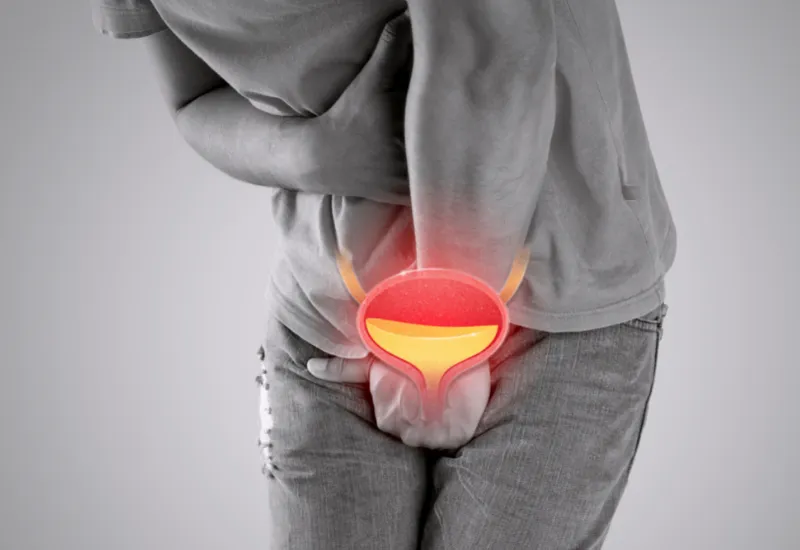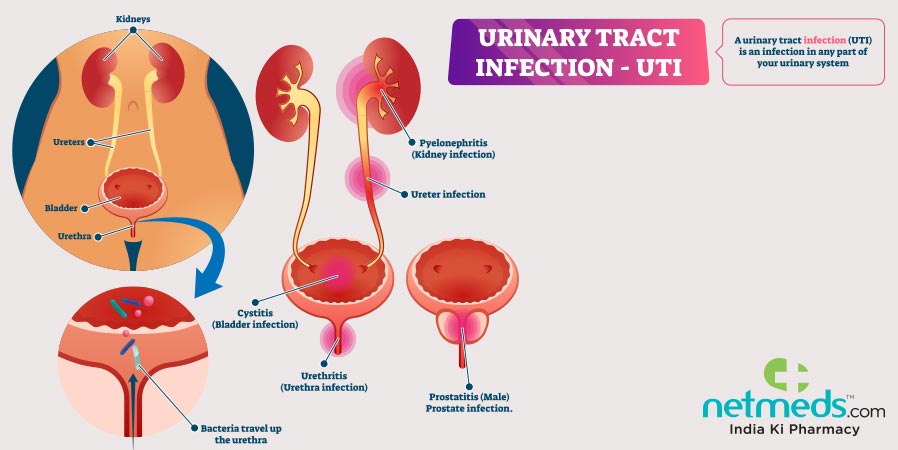1. Understanding UTIs
A urinary tract infection (UTI) is an infection that occurs when bacteria enter the urinary system through the urethra and multiply in the bladder. The most common type of UTI is a bladder infection, also known as cystitis. If left untreated, a UTI can spread to the kidneys and cause a more serious infection called pyelonephritis.
UTIs are more prevalent in women due to their anatomical structure. The shorter urethra in women makes it easier for bacteria to travel from the anus to the urethra and reach the bladder. Sexual activity, certain types of birth control, menopause, urinary tract abnormalities, and a suppressed immune system can also increase the risk of developing a UTI.
2. Causes of UTIs

UTIs are primarily caused by bacteria, most commonly Escherichia coli (E. coli) that originates from the gastrointestinal tract. However, other bacteria and even sexually transmitted infections can also lead to UTIs. Infection of the bladder occurs when bacteria enter the urethra and multiply, causing inflammation and infection. Infection of the urethra can occur due to the spread of bacteria from the anus or from sexually transmitted infections.
3. Symptoms of UTIs
While UTIs don’t always cause symptoms, they can manifest in various ways. Common symptoms of UTIs include:
-
Strong and persistent urge to urinate
-
Burning sensation during urination
-
Frequent urination with small amounts of urine
-
Cloudy or bloody urine
-
Strong-smelling urine
-
Pelvic pain, especially in women
-
Back or side pain
-
Fever, chills, nausea, and vomiting in severe cases
4. Diagnosing UTIs
If you experience symptoms of a UTI, it’s important to seek medical attention for proper diagnosis and treatment. A healthcare provider will typically conduct a physical examination and collect a urine sample for laboratory analysis. In some cases, additional tests such as a urine culture or imaging studies may be required to determine the extent of the infection.
5. Treatment for UTIs
UTIs are commonly treated with antibiotics to eliminate the bacteria causing the infection. The specific antibiotic prescribed will depend on the type and severity of the UTI. It’s essential to complete the full course of antibiotics as prescribed by the healthcare provider to ensure the infection is fully eradicated.
In addition to antibiotics, over-the-counter pain relievers can help alleviate discomfort during urination. Drinking plenty of water and urinating frequently can also help flush out bacteria from the urinary system.
6. Preventing UTIs
While UTIs can be distressing, there are steps you can take to lower your risk of developing an infection. Here are some preventive measures:
-
Drink plenty of water to dilute urine and flush out bacteria.
-
Consider consuming cranberry juice, which may help prevent UTIs.
-
Practice good hygiene, including wiping from front to back after using the bathroom.
-
Urinate before and after sexual intercourse to help flush out bacteria.
-
Avoid using potentially irritating feminine products in the genital area.
-
Change your birth control method if it contributes to bacterial growth.
7. Tips for UTI Prevention

In addition to the general preventive measures mentioned above, here are some additional tips to reduce the risk of UTIs:
-
Maintain good genital hygiene by washing regularly with mild soap and water.
-
Wear breathable cotton underwear and avoid tight-fitting clothing.
-
Avoid holding urine for prolonged periods and empty your bladder completely when urinating.
-
Avoid using harsh soaps, bubble baths, and scented products in the genital area.
-
Take showers instead of baths to minimize exposure to bacteria.
8. UTIs in Men
While UTIs are more common in women, men can also develop urinary tract infections. In men, UTIs are often associated with underlying urinary tract abnormalities, such as an enlarged prostate or kidney stones. Men who engage in anal intercourse may also be at a higher risk of developing UTIs. The symptoms and treatment for UTIs in men are similar to those in women.
9. UTIs in Children
UTIs can occur in children of all ages, but they are more common in girls during infancy and early childhood. In young children, UTIs may present with nonspecific symptoms such as fever, irritability, and poor feeding. Prompt diagnosis and treatment are crucial to prevent complications, such as kidney damage. It’s important to consult a pediatrician if you suspect your child has a UTI.
10. Complications of UTIs
While UTIs can usually be treated effectively, complications can arise if the infection is left untreated or recurs frequently. Some potential complications include:
-
Repeated infections, which may require further investigation and treatment.
-
Kidney damage, particularly if the infection spreads to the kidneys.
-
Premature birth or low birth weight in pregnant women with UTIs.
-
Urethral narrowing in men due to recurrent infections.
-
Sepsis, a life-threatening infection that can occur if the UTI spreads to the bloodstream.
11. When to See a Doctor

If you experience symptoms of a UTI, it’s important to seek medical attention promptly. Additionally, certain individuals may be at a higher risk of complications and should consult a healthcare provider if they develop UTI symptoms. These individuals include pregnant women, men with UTI symptoms, children with suspected UTIs, and individuals with underlying medical conditions that weaken the immune system.
12. Conclusion
Urinary tract infections (UTIs) are a common condition that can cause discomfort and potentially lead to complications if left untreated. By understanding the causes, recognizing the symptoms, and adopting preventive measures, you can reduce your risk of developing UTIs. Remember to seek medical attention if you experience symptoms or if you’re at an increased risk of complications. With proper diagnosis and treatment, UTIs can be effectively managed, allowing you to maintain good urinary health.
